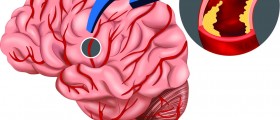
Lisinopril is an oral medicine which is used for thetreatment of hypertension or high blood pressure, congestive heart failure,heart attack and for the prevention of renal and retinal problems in personswho suffer from diabetes. It belongs to the angiotensin converting enzymeinhibitor class.
It is extremely important that the patient consults his healthcare provider before using this medicine, because there are severalcases in which Lisinopril is not recommended. The physician must be informed about the patients health history, and especially about the possible existing conditions which are related to heart, liver or kidneys. Information about pregnancy or if the patient is breastfeeding should not be missed out, either. The patient must not drink alcoholwhile taking Lisinopril. It isrecommended to drink as much water as the patient can, during the treatment withthis drug.
Lisinopril tablets can be used alone or incombination with other antihypertensive drugs while the treatment lasts. Lisinopril also has someside effects, but whether or not some of them will appear depends and varies from personto person. The person who takes this drug might usually complain of headache and gaining of the body weight. Nausea, vomiting, sore throat and tremors are also verypossible, as well as the occurrencesof diarrhea, yellowing of the skin or eyes or cool and pale skin. Angioedema ofthe face, extremities, lips, tongue, and larynx have been some of the reported side effects inpatients treated with angiotensin-converting enzyme inhibitors, includingLisinopril, and this may occur at any time during the treatment. Moreover, theperson may complain of tiredness, weakness, slow heartbeat and musclepain. In addition to these side effects, there are even more such as increasedcold sweating, problems with breathing, problems with senses, especially withhearing and vision, anxiety, confusion and swelling of hands, arms andlegs for which there is no logical explanation. Chills and infections are common.
Apart from the side effects that we have listed so far, there havebeen cases where the problems such as bone pain, chest pain, darkurine, reduced urination, pale stools, serious allergic reactions and constant loss of appetite occurred, and some patients even experienced the lack ofsexual desire while using Lisinopril as medication.
Among the cardiovascular side effects there are several effects:hypotension, angioneuretic edema, angina pectoris, orthostatic hypotension andpalpitations, while among renal side effect there are two: protenuria and renalinsufficiency. Metabolic side effects include the insignificant increasein serum potassium, while hepatic side effects include a very uncommon syndromewhich can lead to necrosis and even death.

















Your thoughts on this
Loading...